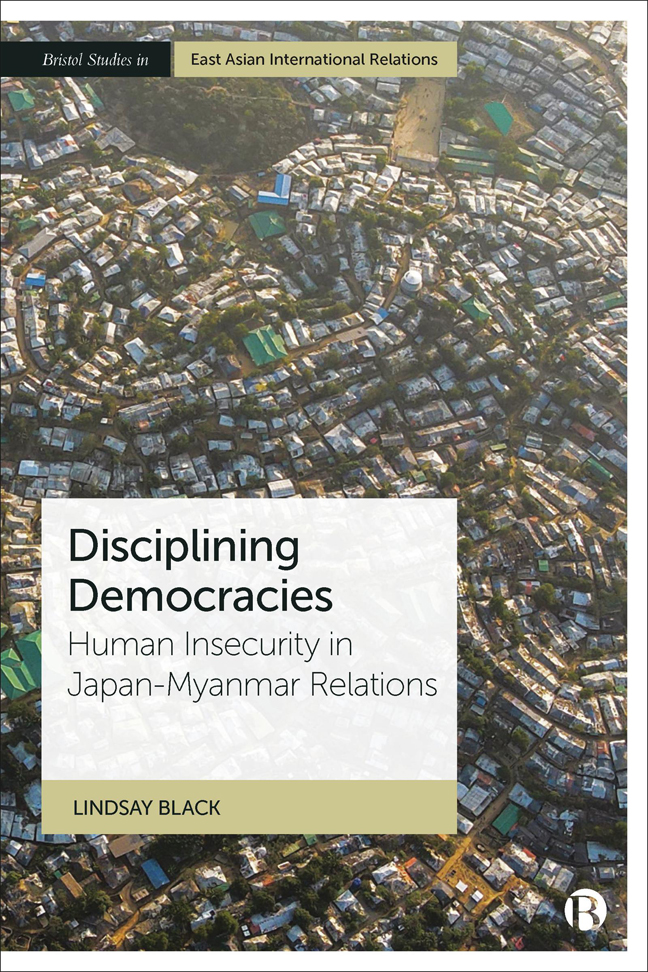Book contents
- Frontmatter
- Dedication
- Contents
- List of Abbreviations
- Acknowledgements
- Introduction
- 1 The Evolution of New Area Studies
- 2 ‘Asia's Liberal Leader’ and Human Insecurity
- 3 Japan as a ‘Bridge’: Facilitating Myanmar's Transition to a ‘Disciplined Democracy’
- 4 Japan and Special Economic Zones in Myanmar
- 5 Meddling for Profit: Japan's Peace-building Role in Myanmar
- 6 Dereliction of Responsibility: Japan's ‘Liberal Leadership’ in the 2016–20 Rakhine Crisis
- Conclusion: The Chimera of Progress
- Notes
- References
- Index
1 - The Evolution of New Area Studies
Published online by Cambridge University Press: 25 January 2024
- Frontmatter
- Dedication
- Contents
- List of Abbreviations
- Acknowledgements
- Introduction
- 1 The Evolution of New Area Studies
- 2 ‘Asia's Liberal Leader’ and Human Insecurity
- 3 Japan as a ‘Bridge’: Facilitating Myanmar's Transition to a ‘Disciplined Democracy’
- 4 Japan and Special Economic Zones in Myanmar
- 5 Meddling for Profit: Japan's Peace-building Role in Myanmar
- 6 Dereliction of Responsibility: Japan's ‘Liberal Leadership’ in the 2016–20 Rakhine Crisis
- Conclusion: The Chimera of Progress
- Notes
- References
- Index
Summary
Introduction
The relationship between Area Studies and IR has been fraught. Area Studies began as a key component of imperialist efforts to remake the non-Western world in the image of the West and then to inform neoliberalist and neoimperialist projects during the Cold War. The cosy relationship between area specialists and policy makers compromised the academic freedom of the former from the outset, leading to the notion that Area Studies specialists were ‘real estate agents’, ‘a-theoretical’ and ‘cameras not thinkers’, who confirmed Western theories by applying them to non-Western cases. From this vantage point, the West became the active subject in the study of IR, relegating the non-West to the position of passive objects.
A key problem was the emergence of the mainstream IR discipline over the course of the Cold War. Rationalist, state-centric approaches and an emphasis on positivist methodologies marginalized Area Studies contributions to the field of IR. Even contemporary assessments of the relationship between Area Studies and IR, such as by Acharya (2005; 2014), perceive the former as needing to conform to the latter.
Decades of self-reflection on this troubled history has enabled a revitalized Area Studies agenda, or ‘New Area Studies’ (Houben, 2017), to form. As Area Studies evolved, so scholars became increasingly vigilant of knowledgemaking practices and reflective of the subjectivity of research. As a result, a revitalized ‘New Area Studies’ can make important contributions to both global politics and policy-making communities, including: a focus on the grassroots; providing critical insights into complex societies and histories; an appreciation for the transmission of ideas through global networks; a concern with the impacts of globalization; and an appreciation of area knowledge and philosophy.
The chapter begins by examining the relationship between Area Studies and IR. Next, the chapter re-evaluates how an evolving ‘New Area Studies’ can contribute to our understanding of global politics. The chapter concludes by setting out the methodological approach applied in this study.
Area Studies and International Relations
The relationship between Area Studies and IR is inherently problematic. Area specialists served the state by providing information for colonial and imperial projects and then, during the Cold War, neoimperialist and neoliberalist projects (Dutton, 2002).
- Type
- Chapter
- Information
- Disciplining DemocraciesHuman Insecurity in Japan-Myanmar Relations, pp. 17 - 33Publisher: Bristol University PressPrint publication year: 2023



